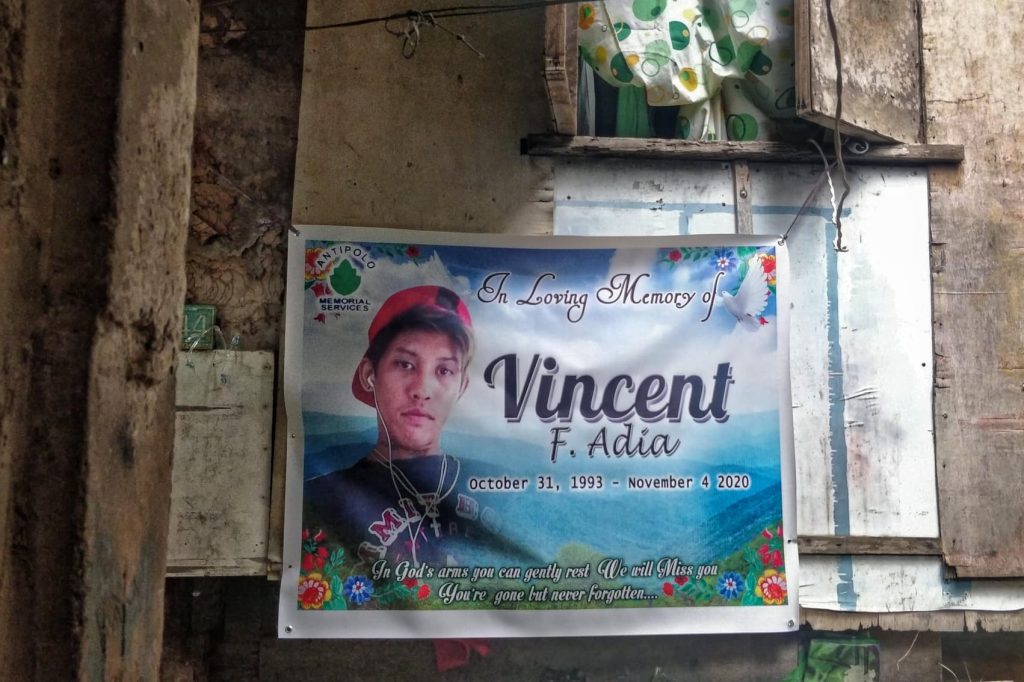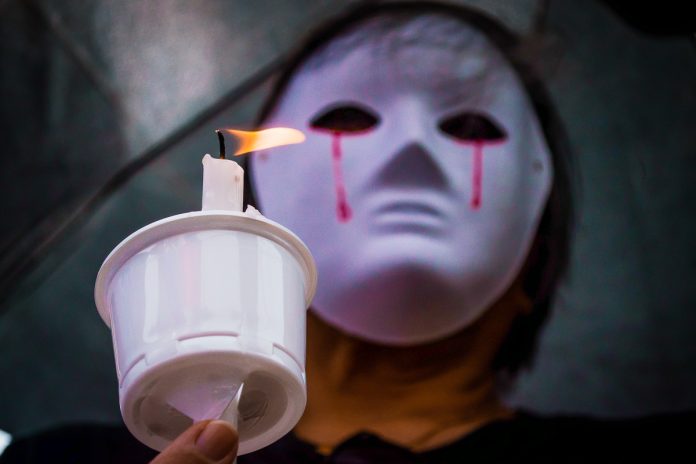The coronavirus pandemic might have put the world to a standstill, but seemingly not the killings in the Philippines.
Minutes after midnight of November 4, Vincent Adia, 27, left a friend’s house to buy drinks for a late birthday celebration.
He never returned.
A few hours later, he was found in a village in the outskirts of the Philippine capital Manila. Those who discovered his body in a ditch thought he was already dead.
Village officials brought Vincent to the nearest hospital where doctors discovered three gunshot wounds on his head.
Vincent survived, but not for long.
A few minutes before noon on the same day, a masked gunman barged in to the hospital and went directly to where Vincent was lying.
The gunman repeatedly pulled the trigger to make sure the already wounded Vincent was dead. He then pointed the gun to the doctors and nurses and, again, shot his target, the already lifeless body of Vincent, before escaping.
Although the police have yet to determine whether or not Vincent was on the government’s drug watch list, they were quick to label the killing as “not drug-related.”
Police Major Richard Corpuz said the brutal killing of Vincent was an “isolated case” and assured the public that they authorities are going to look closely into the incident.
Vincent was a former convict who was released in 2019 after serving seven years in prison for a robbery charge.
His death was just one of the many incidents of “drug-related” killings even in the midst of the coronavirus pandemic.

More killings in recent months
On Friday, November 6, the Philippine Drug Enforcement Agency reported that 47 more drug suspects were killed in anti-drug operations nationwide in August and September, raising the “drug war” death toll from 2016 to September this year to 5,903.
The additional drug war deaths were based on the agency’s “Real Numbers” figures, which showed an increase in drug war deaths from 5,856 in August this year to 5,903 in September this year.
In the same period, the agency said 896 government workers – 438 are government employees, 356 are elected officials, and 102 uniformed personnel were arrested for drug-related offenses.
In June, the United Nations Human Rights Council reported that 8,663 were killed since President Rodrigo Duterte came to power in 2016 and launched a crackdown against illegal drugs.
Human Rights Watch reported that the killings did not stop even under strict quarantine measures imposed by the government since March due to the spread of the new coronavirus disease.
Divine Word Missionary priest Flaviano Villanueva, a vocal critic of the government’s “war” against illegal drugs, described Vincent’s killing as “a brazen act.”
“To kill a person is a tragedy by itself, but to pursue him inside a hospital is too brazen,” said the priest.
“This clearly depicts a new pandemic devouring us — the pervading culture of fear and death,” he added.
Father Villanueva has just officiated Mass for the funeral of Joshua Evangelista, a 19-year-old boy who was killed by still unknown assailants on October 13 in the suburb of Caloocan, also in the Philippine capital.
When Joshua was 15 years old, he was arrested for alleged possession of illegal drugs. His mother said the charges were “fabricated by the police.” After three years, in 2019, he was released.
When he was killed last month, not a single police officer or investigator came to the crime scene. The incident was only reported when the Joshua’s body was brought to a hospital.
“The poor are the ones constantly pushed to the margins,” said Father Villanueva.

On October 25, Jocel Sales, 30, was also killed by still unidentified gunmen on motorcycles about 5:30 in the morning in Navotas, also in the outskirts of the Philippine capital.
Jocel was a known drug user and was recently released from jail for charges of “frustrated murder.” His body is yet to be buried as of posting time because the family has no money for funeral services.
Many of the victims of “extrajudicial killings” in the country since 2016 came from the cities of Caloocan, Malabon, and Navotas, all under the Diocese of Kalookan.
On October 3, Mayor Oscar Malapitan of Caloocan announced that the crime index in the city has gone down by 32.8 percent this year due to the pandemic.
Bishop Pablo Virgilio David of Kalookan said there were “definitely fewer cases during the pandemic, relatively speaking” compared to the past years since 2016.
But the prelate said the killings have claimed more lives than the new coronavirus disease.
“Unless we’re hearing less about them because media people have gotten too used to them,” said Bishop David, adding that he would know because the families of victims would usually ask for help from the Church.
As a response to the reported rise of incidents of “drug-related” killings, President Duterte said he has ordered a “discreet probe” into the “bothersome” killings that are being blamed on his administration.
The president said the result of his investigation showed that the killings were not state-sponsored but were results of conflicts between rival drug syndicates.









